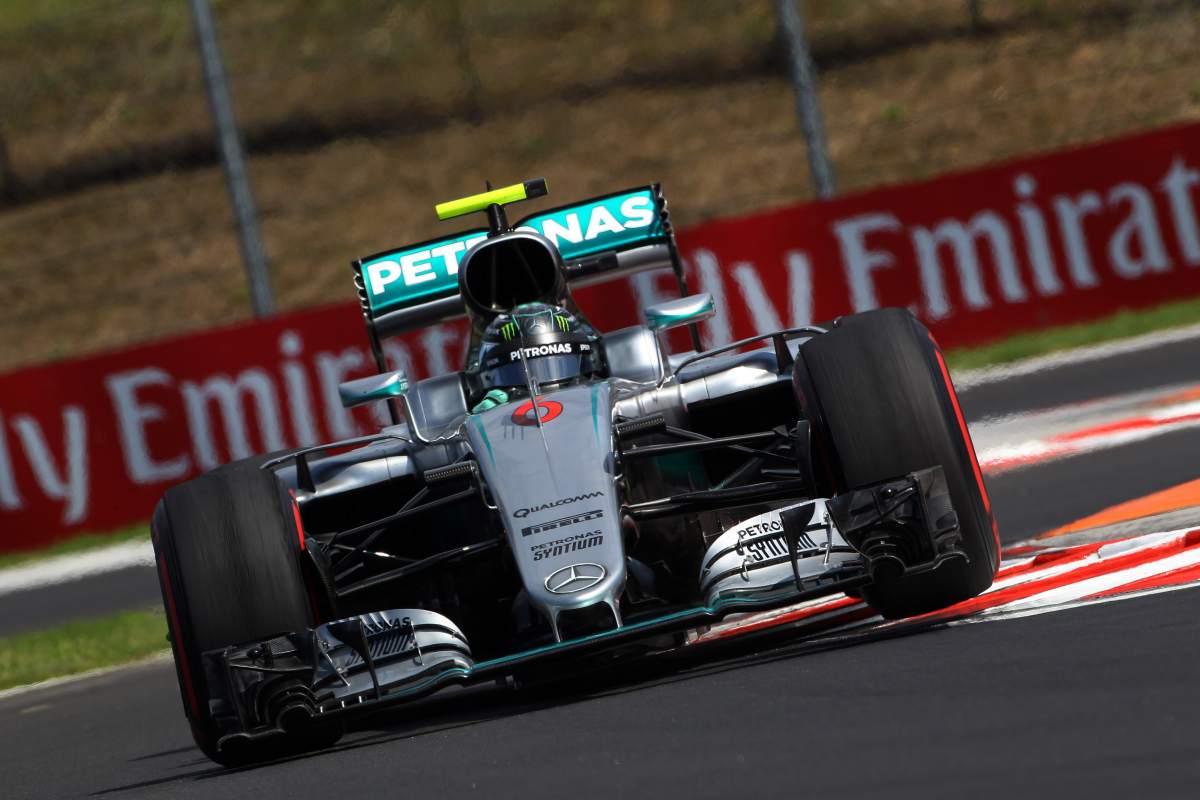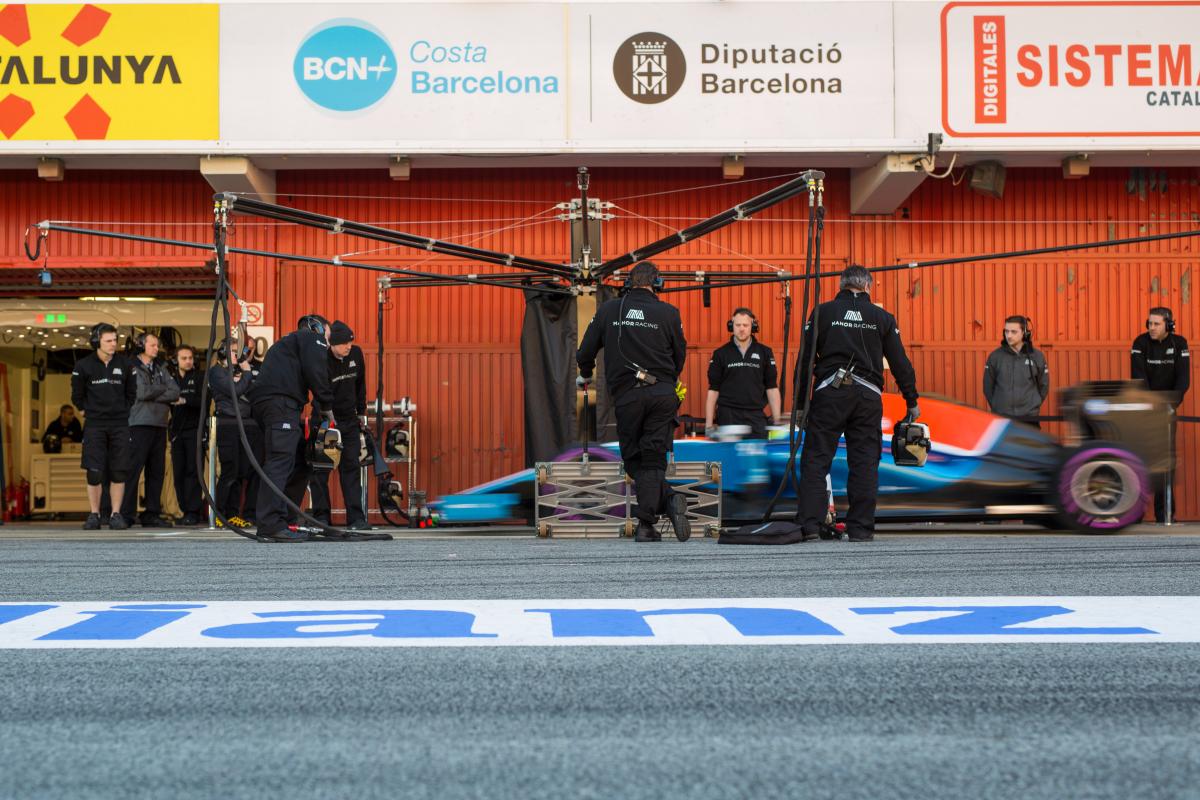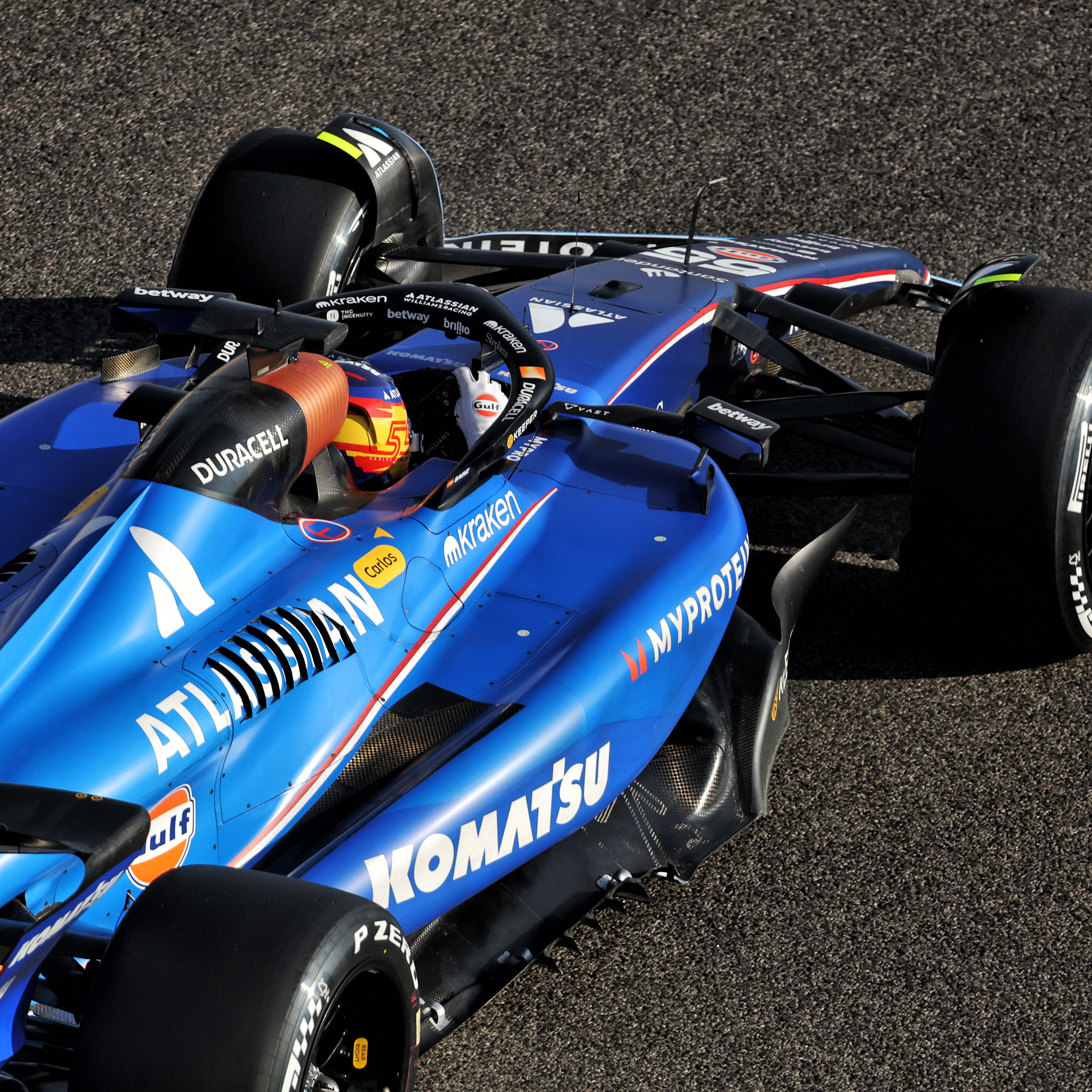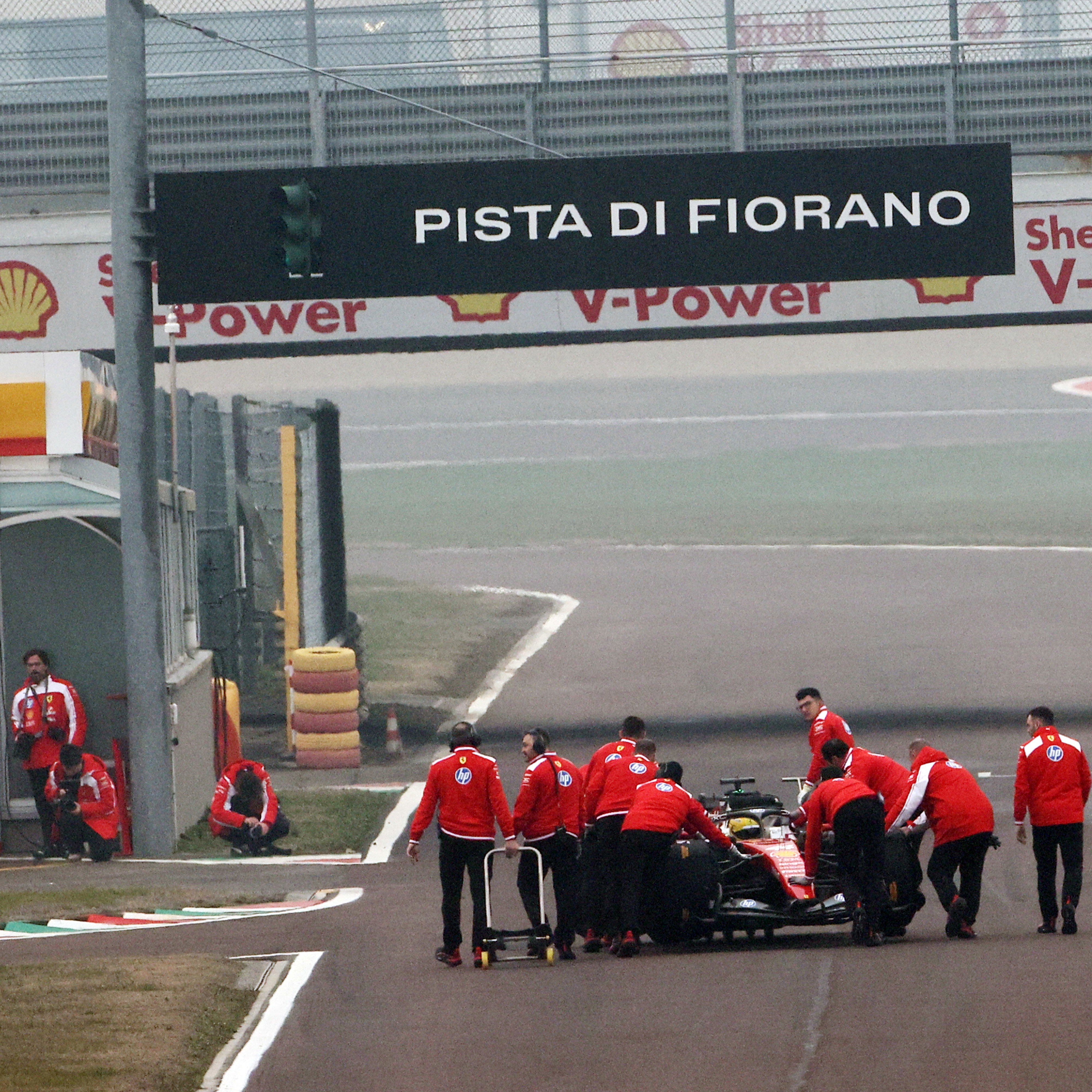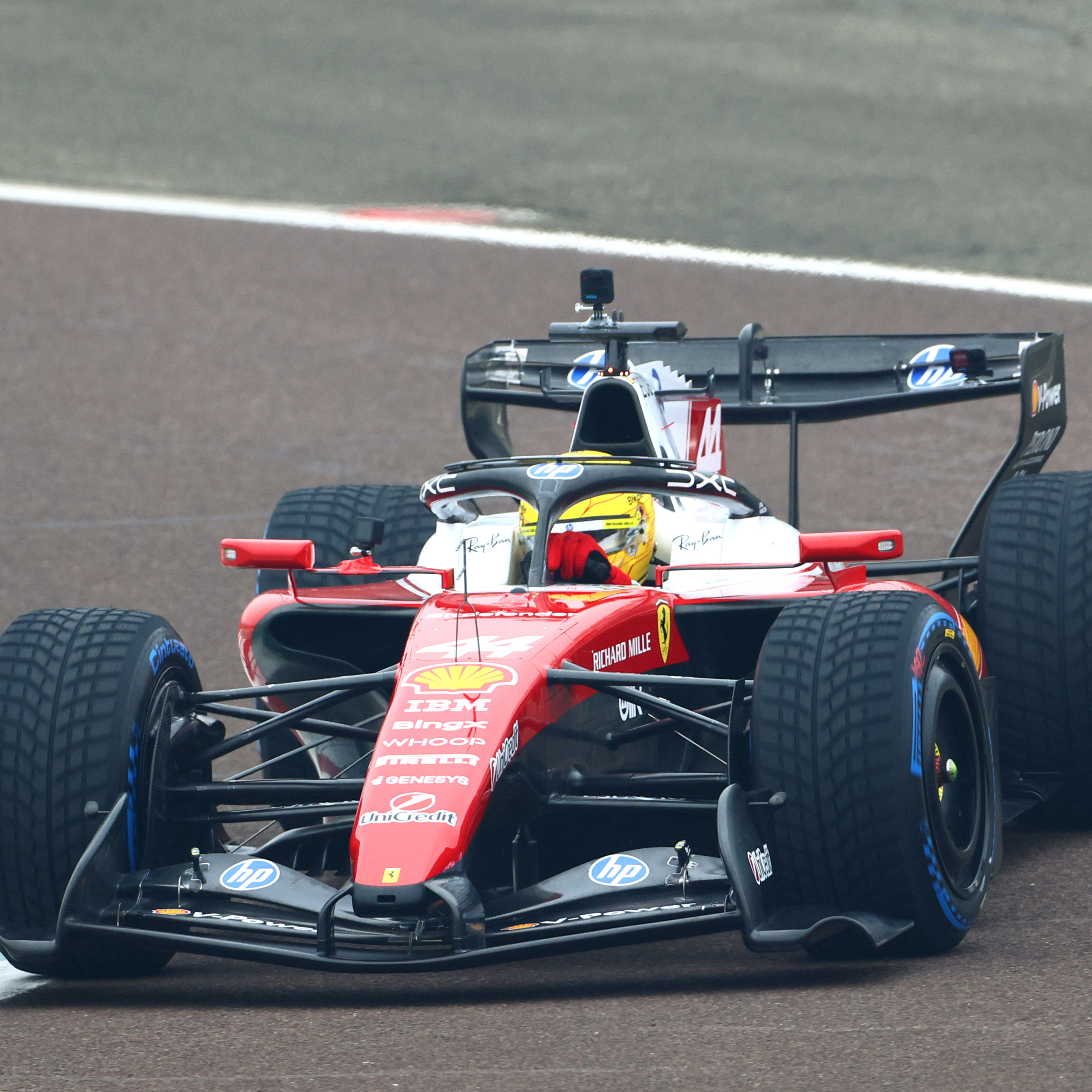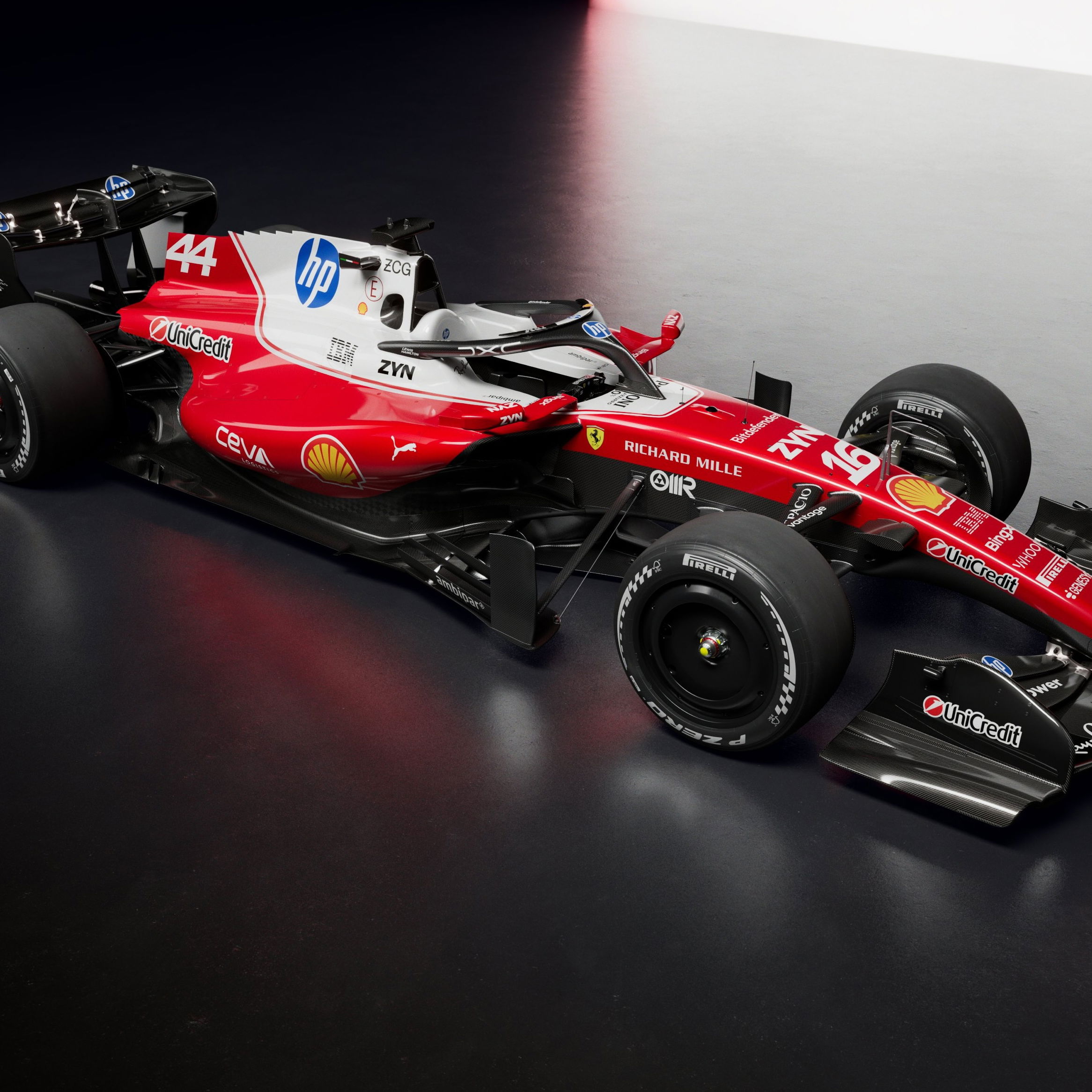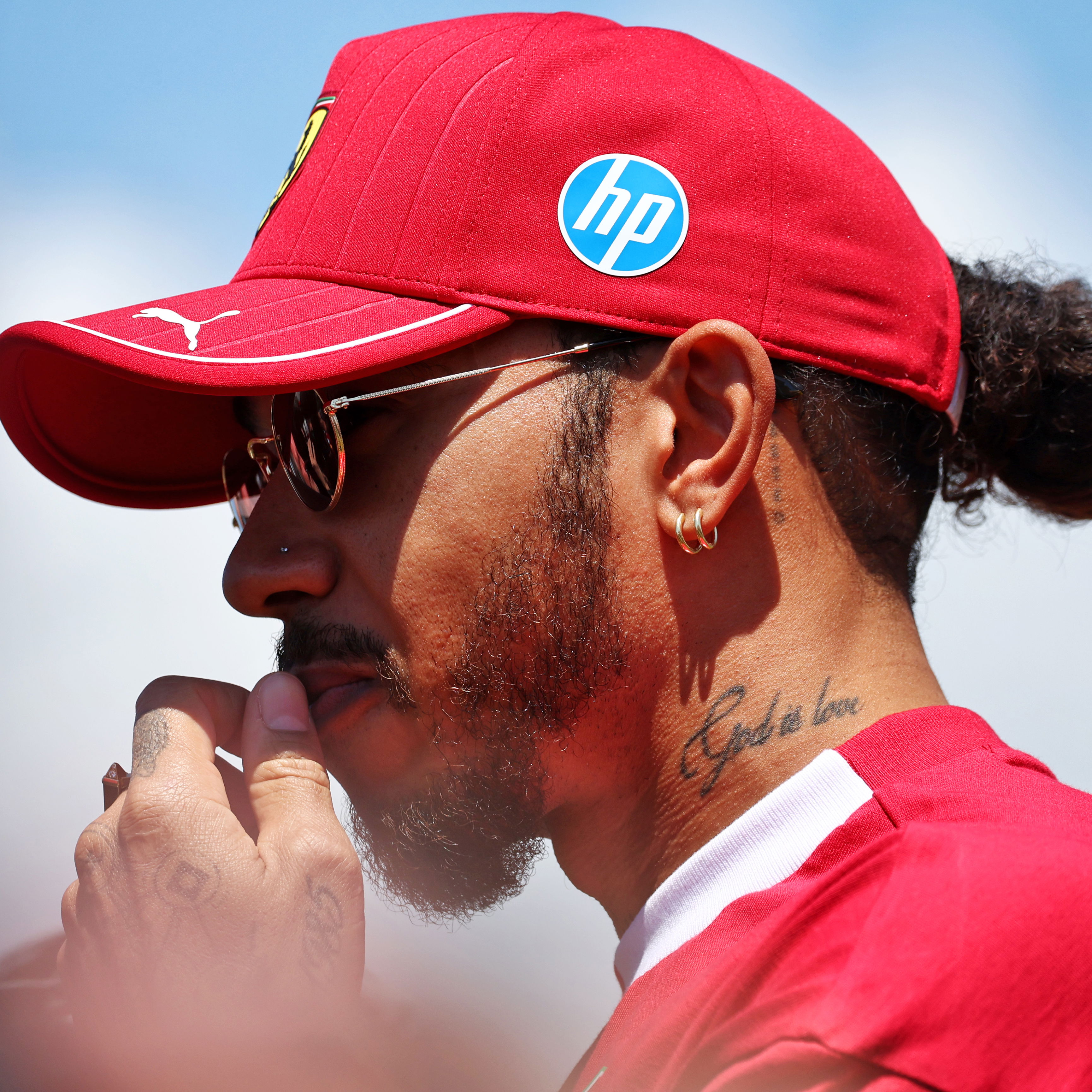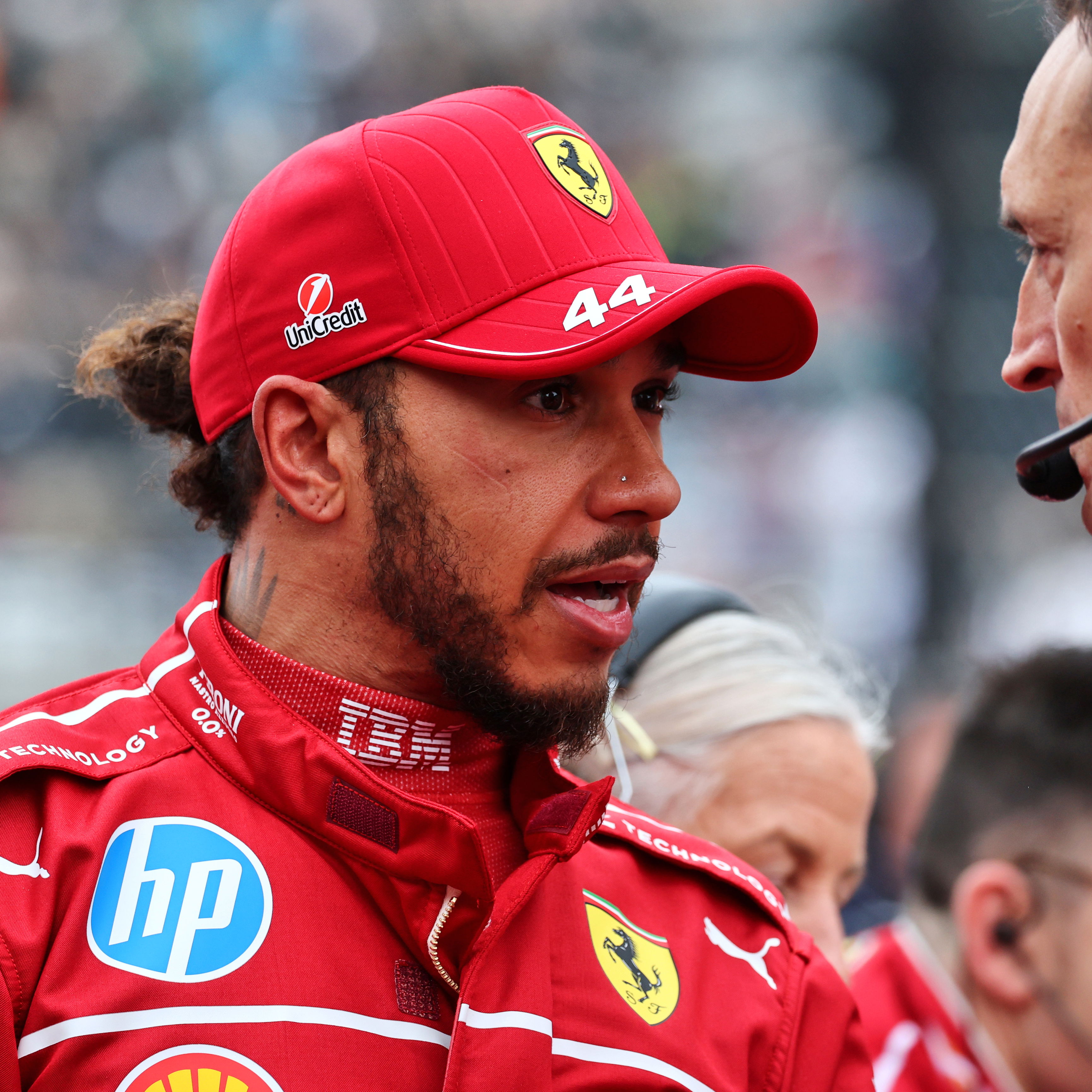Remembering... Damon Hill's broken Arrows

By Ollie BarstowFollow @OllieBarstow on Twitter
Formula 1 can be a cruel sport.
For as many fairytales with a happy ever after, there are dreams-turned-nightmares to earn their place in F1 infamy and forever remain a footnote in moments of sporting bitterness.
Whether it is the precise moment Felipe Massa and his adoring fans realise their 2008 title celebrations are around 40 seconds premature or Mika Hakkinen watching victory slip with his temperamental clutch on the final lap of the 2001 Spanish Grand Prix, F1 has the potential to strike all the feels when it so desires.
For many though, 'unlucky' in motorsport is no better typified than by Damon Hill coming to within a lap of clinching a long awaited and wholly unexpected win for the Arrows team in the 1997 Hungarian Grand Prix and rarely does the annual visit to Budapest pass without a moment to reflect on the almost-David-and-Goliath tale.
 |
| He was a world champion with Williams, but Damon Hill's almost-win with Arrows remains one of his most memorable F1 moments |
Indeed, while the credentials of Hill - a world champion only a year earlier with Williams - were not to be argued, his arrival in Hungary, round 11 of the 1997, came against the backdrop of an otherwise dismal campaign that questioned the wisdom of his decision to join the minnow outfit.
Jettisoned from Williams in favour of Heinz-Harald Frentzen even before he would go on to win the 1996 title in the dominant FW18, Hill wasn't short of offers for 1997, but typified his dilemma by refusing to take his champion status to McLaren in return for a mere 'salary-by-results' contract.
Instead, Hill would offer his hallowed #1 plate to a team that managed just a single top six finish in 1996, explaining it was the only outfit willing to meet certain demands, not least a one-year deal.
Regardless, Hill was nonetheless also putting his faith in new owner Tom Walkinshaw Racing (TWR), but the A18 with its underpowered Yamaha engine and unproven Bridgestone tyres did not represent a competitive package, even with a champion at the wheel.
With just one point from the opening 10 rounds to show for his efforts, largely the result of woeful reliability, Hill had rapidly faded from high-profiler to a background player. Nevertheless, Arrows recognised its strengths and had long considered the upcoming Hungarian Grand Prix at the Hungaroring as its best opportunity to prove its capabilities on a leveller playing field.
However, even with a proven driver on board, a more reliable car and the lack of engine power being less of a hindrance at the tight and twisty circuit, Arrows knew the key to an upset would ultimately remain dependent on temperatures... specifically temperatures high enough for its Bridgestone tyres to flourish.
 |
| Hill had taken the #1 plate to Arrows but the Yamaha-powered, Bridgestone-shod car was not a reliable or competitive package |
New for 1997, Bridgestone had shown flashes of promise in its inaugural season with four partners (Prost, Stewart, Arrows and Minardi) to challenge Goodyear's monopoly, its tyres' ability to work particularly well in high temperatures and on abrasive surfaces giving the otherwise steady midfielders the occasional chance to hit the front when the circumstances allowed.
This had already been demonstrated at a punishing Spanish Grand Prix when Prost's Olivier Panis went from 11th on the grid to finish second as Goodyear-shod rivals struggled with unusually high wear, a feat Arrows believed it could mirror in Hungary if the sun came out and the car stayed together.
The seeds of potential were sown during a suitably warm Friday practice as Bridgestone drivers infiltrated the leading positions, with Hill snatching the headlines in fifth despite completing just one flying lap due to earlier technical issues.
Buoyed by the car's instant pace, Hill furthered his intentions by placing the Arrows on the second row of the grid in third. Better still, it was not solely down to the tyres since no other Bridgestone-shod car had made it inside the top ten and many agree to this day driver skill was the predominant factor in his lofty result.
 |
| Hill qualified a shock third in Hungary thanks in part to his Bridgestone tyres and his own mighty efforts |
Racing at a circuit with notoriously scant overtaking opportunities, Hill found himself in a good position to at least take some much desired points away from the race but few expected him to ascend.
Ascend is exactly what he did though, Hill making the most of starting from the cleaner side of the rarely-used circuit to get the jump on second place Jacques Villeneuve down to the opening bend before tailing leader Michael Schumacher as they escaped from the chasing pack.
From here Hill began to sense an advantage, the Ferrari blistering its tyres and becoming a handful compared with the more resilient Bridgestone-shod Arrows that shadowed Schumacher's every move. What followed on lap ten was the move few would have anticipated pre-race as Hill tucked into the slipstream, pulled up alongside his former title rival on the run to turn one and used his superior grip to pull the nose in front into the turn one right-hander.
Though it was not the first time an Arrows had led a race in F1, it was far from a familiar sight for a team that - since its debut in 1978 - managed a fairly meagre eight podiums, none of which had been on the top step.
Furthermore, Arrows was now daring to dream as Hill simply surged clear of Schumacher, the German's desperate tyre situation worsening enough to send him back to the pits. Indeed, the Bridgestone tyres were holding up well compared with their Goodyear counterparts, while a fairly high attrition rate was nixing the challenge of others.
 |
| Hill rose to second off the line and stayed with Michael Schumacher before passing for the lead on lap 10 and pulling away |
With just three laps remaining, Hill was a mammoth 35secs clear of new second place man Jacques Villeneuve and seemingly on course for a famous and long awaited maiden win for a team that could now almost taste the winners' champagne.
And then, cough.
Slow. Pick up. Slow again.
Backmarkers un-lap themselves.
Three laps remaining and it was becoming apparent the Arrows was in trouble. Though initially seen as Hill being supremely cautious with such a sizeable advantage, the loss of 10secs to Villeneuve in a single lap demonstrated this was more than simply playing safe.
As the urgency in the voice of the commentators grew and heads began to fall into the hands of the Arrows pit crew, Hill radioed in that he did indeed have a problem and the prognosis wasn't good.
The 'problem' was an intermittent throttle and a gearbox stuck in third. There was little Hill could do than to nurse the car as best he could, making the occasional weave in a heartbreakingly futile attempt to get the A18 to pick up. Remarkably, Hill was still leading as he dragged his car across the line to start the final lap, but Villeneuve was now just a few seconds behind and poised to pounce.
The cruel inevitability would ultimately unfold at turn four as Villeneuve - approaching almost too fast such was the disparity in the performance - jinked by on the outside of turn four. As Villeneuve flicked up the dust, hearts across the F1 world sank and while few would begrudge the future champion his (and what would be a crucial) win, you'd be hard pressed to find anyone outside Williams who wasn't wishing the race was just a lap shorter.
 |
| Hill is passed on the final lap of the race after the car is struck by technical issues, much to the disappointment of the fans |
Though perhaps no consolation at the time, Hill would later remark that he was just relieved to see the chequered flag having expected to park the car as soon as it began to splutter. Instead, he would nurse it home still securing a second place finish - Arrows' best result in 18 years.
Gallingly, it was later revealed that the broken part that cost Arrows victory was a mere washer costing little more than 50p... not enough for a cup of tea but enough to ultimately cost Arrows a well-deserved victory.
Indeed, though it is the factor of champion-turned- underdog Hill that continues to get fans misty-eyed about what could have been to this day, he remains a driver with a world title under his belt that would go on to win again with Jordan the following year.
For Arrows, however, this was the closest it would ever get to the top of the rostrum, the plucky - if ultimately cash-strapped - privateer team persevering until 2002 having entered 368 races without ever tasting the winners' champagne.
Instead, that 1997 race would become the bittersweet legacy of its unenviable reputation as the longest-serving F1 team never to win a race, yet it remains proof that Davids can very occasionally take on the mightiest Goliaths (on the right tyres at least).
